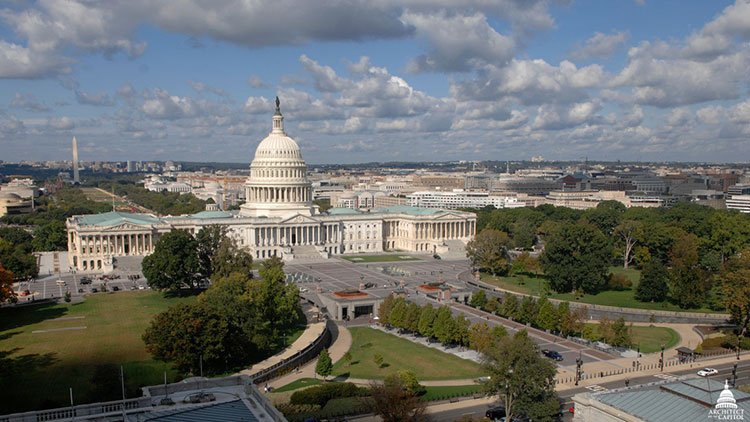Cruz Control: Senator Says Big Tech Needs Reining In

The smarter way to stay on top of the multichannel video marketplace. Sign up below.
You are now subscribed
Your newsletter sign-up was successful
Sen. Ted Cruz (R-Texas) waded into Big Tech big time in a Federal Trade Commission oversight hearing that featured much edge-provider critiques.
Cruz was arguably the most pointed critic during the Senate Consumer Protection Subcommittee hearing Tuesday (Nov. 27), which dealt primarily with online privacy and data protection and what additional authority the FTC needed to protect it.
During questioning the FTC chair suggested the FTC should not be getting into the issue of censorship of speech by platforms, suggesting perhaps that was an area for the FCC.
Sen. Cruz, a former FTC staffer himself, got assurances that the commission was looking into what he called Google's "deceptive and intrusive collection of location information on Android smart phones, its tracking of in-store purchases and its "deceptive by design" user privacy settings.
Cruz asked if the FTC had investigated those claims and what it had found.
While he said that he could not talk about the specifics of any non-public investigation, which in itself seemed to signal there was one, FTC chair Joseph Simons said that "if you read about it in the press"—Multichannel News was among those who wrote about those issues—or "if there's a congressional letter that points out a potential problem, we're on it."
That appeared to satisfy Cruz. But he was far from done.
The smarter way to stay on top of the multichannel video marketplace. Sign up below.
He pointed to an Esquire article about how Facebook and Google are together worth $1.3 trillion dollars, and compared that to the companies often cited for their dominance.
To put that in perspective, he said, "you could merge the world's top five advertising agencies [WPP, Omnicon, Publicis, IPG and Dentsu], with five major media companies [Disney, Time Warner, 21st Century Fox, CBS, Viacom] and still need to add five major communications companies [AT&T, Verizon, Comcast, Charter and Dish]" and still only have 90% of what Google and Facebook are worth combined.
He asked FTC chair Joseph Simons whether the FTC was concerned about the "massive accumulation of power" by Big Tech and how antitrust law should approach that massive concentration.
Simons said the FTC was worried about the exercise of market power, not the fact of that power. He cautioned that the fact that they are big does not mean it is a problem unless "they got big by being bad"—through anticompetitive conduct—or remain big through such conduct, that is something the FTC needs to stop.
Democratic commissioner Rohit Chopra suggested there might be some competition issues in that very size. He said that if you talk to investors, many say they won't fund a new startup unless they can see the payday of it eventually being bought by a Google or Facebook. He told Cruz he wasn't sure there could be a competitive market or innovative economy "where investors are putting money only into ideas that they can sell to an existing incumbent.
Cruz called those "good and important" concerns.
But he was not done. He wanted to talk about the issue of Silicon Valley censoring conservative speech. He said they were using their market power to silence discourse in the public space that they disagreed with—he cited Twitter banning a conservative speaker, apparently a reference to conservative Jesse Kelly (coincidentally, he has since been reinstated, Fox News reported Tuesday. Cruz said there was virtually no transparency about what Twitter, or Google or Facebook, might be doing to censor speech. He asked Simons what the FTC could and should be doing about that.
Simons signaled it was not clear to him that the FTC should be doing anything in the area of speech. He said what Cruz was talking about was similar to the FCC's "fairness Act"—he meant Fairness Doctrine, under which the FCC enforced balanced speech on the airwaves.
He said "maybe there is an FCC angle there that is appropriate for either the Congress or the FCC to pursue." Cruz was unlikely to be in favor of that, since Republicans long railed against the doctrine as itself a way to repress conservative speech. Simons said that unless it related to a competition issue, or is unfair or deceptive, "then I don't think we have a roll."
Democrat Chopra again signaled he was thinking more along Cruz's lines. He said that he agreed with Cruz that the public knows very little about how edge providers make those content decisions. While he conceded there were free speech issues that might not be in the FTC's wheelhouse, the FCC has [6B) authority to compel information about business practices and to vote to make some of that info public.
Chopra said the FTC was in a position to reveal some of that information and that he would think hard about those speech issues. Cruz encouraged him to do so.
Cruz said the FCC had ample authority to provide transparency if platforms were holding themselves up as neutral public squares, but were not. That, he said, would be false and deceptive, something the FTC can address not through antitrust authority but through its Sec. 5 authority.
Chopra, who clearly has his own issues with Big Tech, pointed out that the FTC's authority also extends to enforcing consent decrees with "several of the largest tech companies on the planet," including Google and Facebook. "We expect that those orders are followed. They are not suggestions."
Contributing editor John Eggerton has been an editor and/or writer on media regulation, legislation and policy for over four decades, including covering the FCC, FTC, Congress, the major media trade associations, and the federal courts. In addition to Multichannel News and Broadcasting + Cable, his work has appeared in Radio World, TV Technology, TV Fax, This Week in Consumer Electronics, Variety and the Encyclopedia Britannica.

